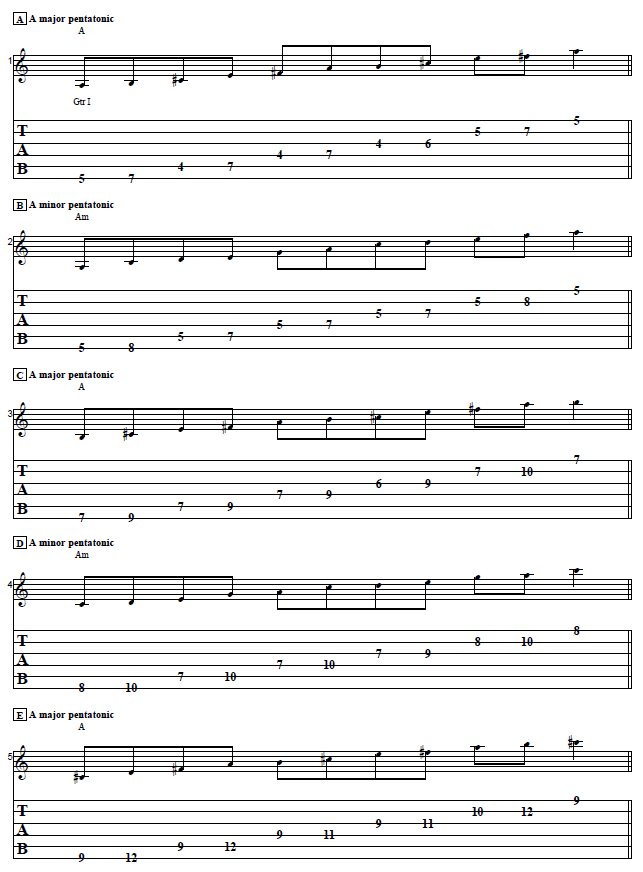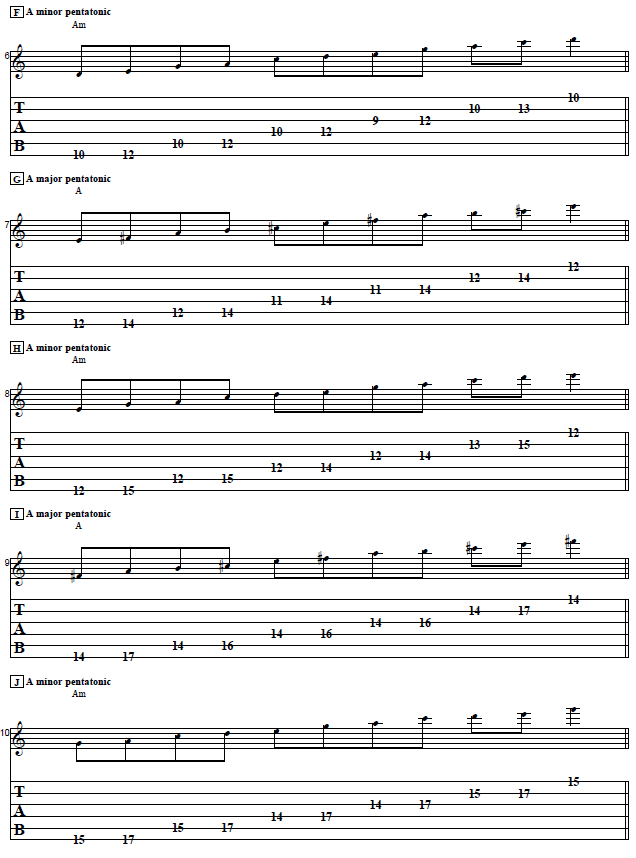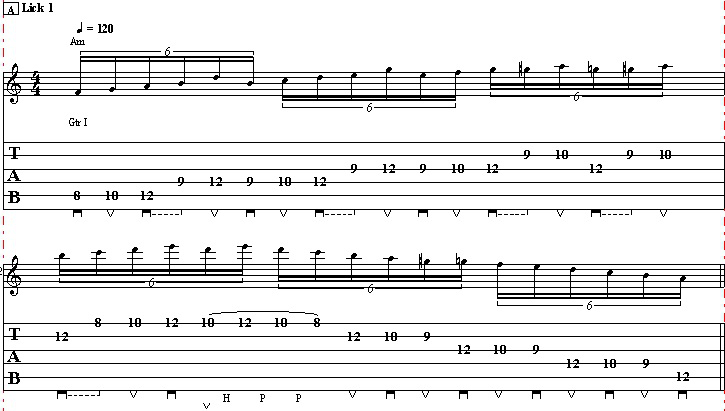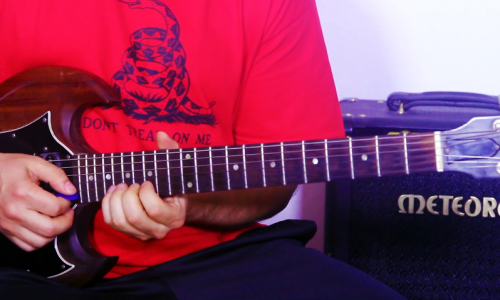Blues Soloing Concepts
In this video, Mike Baelde will show you some 12-bar blues soloing concepts and lead examples from his “Zero to Hero in 10 Days” guitar program.
Hello fellow guitarists, Mike B here, welcome to the final lesson in our concepts section. This lesson is going to be a concept I stumbled across while transcribing tons of different blue solos.
Now, it’s a blues soloing concept that not too many people actually talk about you never really read about this and nobody really talks about this, i actually first stumbled across this while transcribing an Eric Clapton solo, so what i noticed he was doing, he was actually using his root major pentatonic scale. So we’re in the key of A here that’ll be our a major pentatonic scale at certain times in the 12 bar blues and at certain times he was using his a minor pentatonic scale.
A lot of times guitar players are more of the mindset of okay we’ve got a solo let’s just take one scale use that scale for the entire solo this is a concept that guitar players often neglect. A guitar player often thinks okay I’ve got a full solo let’s just use our minor pentatonic or our major pentatonic for the entire thing. This isn’t the best way to go about doing things.
So here’s the blues soloing concept in a basic 12 bar blues whenever you’re on the one chord or for the entire first line of the 12 bar blues you want to be using your major pentatonic scale. So if i’m in A major here we’re in a major blues every time we’re on A7 i’m going to be using my A major pentatonic scale and every time we’re on a D7 or a D9 with the IV chord you’re going to be using an A minor pentatonic scale and then when we go to our E7 we’re going to be using our A minor pentatonic scale. So what this means is that you’re going to have to be changing scales throughout your solo constantly so i like to think of it this way. First line of a 12 bar blues is always safe to say if you use your major pentatonic scale. For the second line of the 12 bar blues where we go to the IV chord for two bars you want to be using your minor pentatonic scale. For those two bars and for the last two bars of that line we’re back to A7 the one chord so you’re going to be using your major pentatonic scale and for the entire last line no matter what the last line is, use your minor pentatonic scale.
This goes back to the blues soloing concept i was talking about earlier which was using your minor pentatonic as an effect not the entire solo so it’s like it’s almost like kicking your overdrive pedal on using your minor pentatonic scale kind of be the same thing so what you gotta do is to do this properly and do it all the way across the neck is you got to know where all of your major pentatonic boxes are with the root of a and where all of your minor pentatonic boxes are with the root of a so before we hop into this i want you to pull out a backing track a major backing track that starts with A7 and start messing around with this changing scales while the chords change very foreign concept to guitar players.
So after you’ve done that let’s check this out so the first one’s nice and easy out a major pentatonic scale is right here minor pentatonic is right here so a good drill is to go like this up your major down your minor and vice versa up your minor down your major. So let me give you just a little bit of a sound of the combination of those two scales switching back and forth sounds very blue three four so you can almost hear the chord changes of the 12 bar blues without the chords even being there just because I’m changing scales at the right time.
So let’s check out where our next box would be with both scales so if we’re in a major pentatonic our next major pentatonic box will be right here do that one more time for you and our minor pentatonic box will be right here so we have so let me play you an example of both of those scales right next to each other.
So it sounds awesome using those two scales at once so let’s move to the next group so our a major the box will be right here and the minor pentatonic will be right here. So let’s have an example where we use both of them, let’s check out what it sounds like when we combine both scales so that’s just a major minor pentatonic put together in that box. So let’s check out the next box so here’s our major pentatonic and our minor pentatonic so let’s check it out what it sounds like when we play both scales in that position foreign it’s got a very nice sound i really like that box it just seems to work really well with my fingers using both of those scales. So let’s check out the last one so here’s our major pentatonic box up on 14. familiar shape and our minor pentatonic box so let’s get a feel for what it sounds when we use both at the same time.


🎸 Get “From Zero to Hero: Blues Guitar” HERE 👉 https://guitarcontrol.net/zerotohero/blues/



